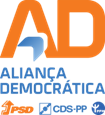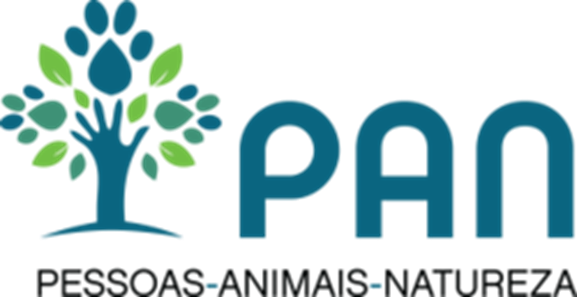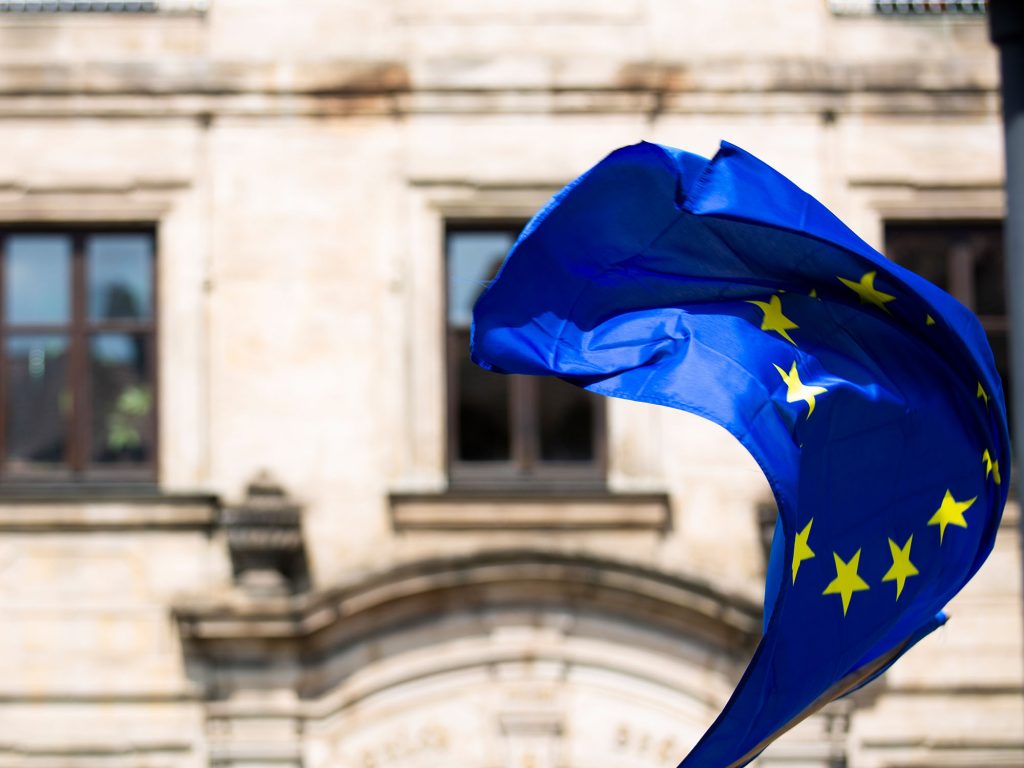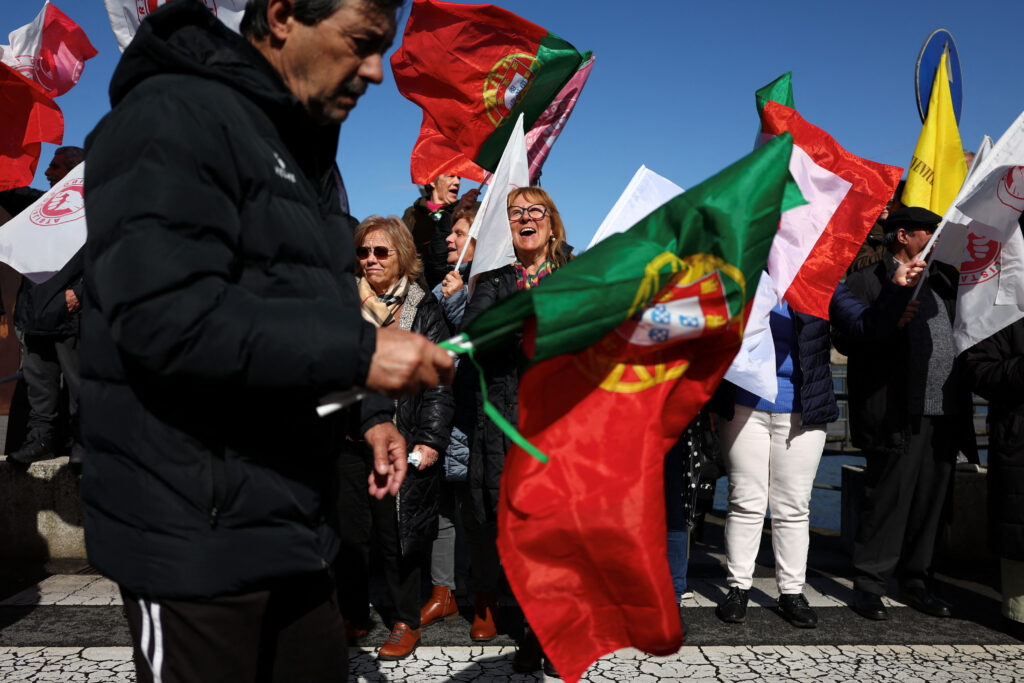Portugal will head to the polls on March 10 for snap parliamentary elections following Prime Minister António Costa’s November 2023 resignation and President Marcelo Rebelo de Sousa’s subsequent decision to proceed with new elections. The competition between the center-left (and ruling) Socialist Party (PS) and the center-right Democratic Alliance (AD) coalition is expected to be much closer than the 2022 parliamentary elections, potentially enabling the rapidly growing far-right party Chega to have a major role in deciding the formation of Portugal’s next government. The election will occur a mere six weeks before the Portuguese mark the fiftieth anniversary of the 1974 Carnation Revolution, an event that launched Portugal toward democracy.
As the people of Portugal prepare to head to the polls, the Europe Center is answering the questions at the center of the elections and breaking down the leading parties and issues to know.
How did we get here?
What is the electoral process?
The Portuguese parliament is a 230-member, unicameral body with members of parliament (MP) elected to four-year terms. MPs are distributed among various geographically defined constituencies, proportional to the population of that district. For example, the Lisbon electoral district will have forty-eight MPs for this parliamentary election, while the Azores—an archipelago with a much smaller population—will only have five. Registered parties nominate candidates for each district, and voters pick their preferred party at the poll. Votes are tallied within each district, and MP positions are proportionally allocated among the parties by the D’Hondt method of computation within the district. Results across the districts are compiled to generate national totals. The president typically invites the party with the most total elected MPs to form a government. An absolute majority is not needed to form a government, but there cannot be an absolute majority (greater or equal to 116 MPs) opposed to any proposed government. Coalitions between parties to form a government are both possible and common.
What are the parties and coalitions to watch?
Socialist Party (PS)
 Orientation: Social democratic/center-left
Orientation: Social democratic/center-left
Leader: Pedro Nuno Santos, secretary general of PS. Nuno Santos won in the December 2023 competition to succeed Costa after he resigned. The 2024 elections will be Nuno Santos’s first major election as PS secretary general.
European affiliation: Progressive Alliance of Socialists and Democrats. PS has nine of Portugal’s twenty-one seats in the current European Parliament.
History: PS has been a force in Portuguese politics since the 1974 Carnation Revolution and the implementation of a modern democratic political system. Previous party leaders include former Portuguese President Mário Soares and current United Nations Secretary General António Guterres. Costa, as secretary general of the party from 2014 to 2024, led the party through the formation of the 2015 minority government (partially negotiated by Nuno Santos) and through the 2022 snap elections, which saw the PS gain an absolute majority with 42 percent of the popular vote and 120 MPs.
Priorities: Following Costa’s resignation, Nuno Santos will attempt to showcase the party’s eight years of economic growth as a model economic system, while trying to simultaneously reshape the party’s image by distancing himself from the various scandals that have been associated with some members of Socialist leadership. PS’ 2024 electoral program will focus on creating selective incentives for key sectors to enable growth, while trying to balance public debt with increased public investment. The PS advocates for lowering taxes for the middle class and accelerating the country’s carbon-neutrality goal by five years, targeting 2045. PS supports European Union enlargement, as long as it does not reduce current funding programs earmarked for Portugal. PS intends to continue bilateral and multilateral support to Ukraine’s self-defense against Russia.
Democratic Alliance (AD)
 Orientation: Liberal conservatism/center-right
Orientation: Liberal conservatism/center-right
Leader: Luís Montenegro, president of the Social Democratic Party (PSD). Montenegro has led PSD since May 2022, following the party’s underwhelming performance in the snap parliamentary elections earlier that year and the subsequent departure of PSD’s previous president, Rui Rio. The 2024 elections will be Montenegro’s first major election as PSD president.
European affiliation: European People’s Party Group; PSD has six of Portugal’s twenty-one seats in the current European Parliament, while fellow alliance member CDS-People’s Party (CDS-PP) has one.
History: The Democratic Alliance is a recurring Portuguese political center-right coalition, composed of three principal parties: PSD, CDS-PP, and the small People’s Monarchist Party (PPM). PSD has been the leading opposition party in Portugal since 2015, when PS was able to form a minority government in a coalition with other left parties despite PSD winning the popular vote. CDS-PP has been a staple of Portuguese politics in the post-dictatorship era but has recently fallen out of favor with center-right voters, failing to win a single MP seat in the 2022 snap parliamentary elections. The PSD remained the minority party during the 2022 elections, earning 28.4 percent of the popular vote and securing seventy-two MPs in the 230-member legislature (second to PS).
Priorities: The AD’s 2024 electoral program focuses on economic plans with which the coalition hopes to distinguish itself from PS, which it accuses of leaving the country “stagnated and outdated.” These include tax reforms, reducing public debt, and increasing productivity. To address allegations of corruption and to regulate lobbying, the AD envisions creating a “transparency register” to coordinate groups who wish to contact public entities and decision makers. AD leaders back current European initiatives to support Ukraine, and they state they want to make the public more aware of NATO’s activities and roles.
Chega
 Orientation: Right-wing nationalism
Orientation: Right-wing nationalism
Leader: André Ventura, president of Chega
European affiliation: Identity and Democracy
History: Chega is a relatively new political party in Portugal, officially forming in April 2019 and gaining momentum rapidly. Although the party won just one seat in the 2019 parliamentary elections, its growth skyrocketed in the 2022 snap elections, gaining 7.4 percent of the popular vote and securing twelve seats in the 230-member legislature. This propelled Chega to have the third-largest representation in the current Portuguese parliament.
Priorities: Chega, in its 2024 electoral campaign, adopted the slogan “Clean Up Portugal,”—alluding to the scandals that have arisen during PS’ rule—and has proposed twenty-one anti-corruption proposals. Immigration is another Chega priority, and the party is proposing to reestablish the country’s defunct border security service, implement immigration quotas based off a fixed set of priorities (which the party explains as labor needs, qualifications, and the perceived value added), and revoke freedom of movement provisions among the community of Portuguese speaking nations. Chega would increase defense spending and increase benefits for members of the Portuguese security services (e.g., national police, members of the gendarmerie force, and firefighters.)
Liberal Initiative (IL)
 Orientation: Liberalism
Orientation: Liberalism
Leader: Rui Rocha, president of IL
European affiliation: Renew Europe
History: IL is a relatively new party on Portugal’s political scene, created in 2016 with the intention of being “Portugal’s liberal party.” The party earned one seat in parliament during its first legislative election in 2019, then made a significant leap forward in 2022 by winning eight seats in the 230-member legislature.
Priorities: IL’s electoral program is built on five main objectives: 1) improving economic growth through lower taxes and increasing purchasing power, 2) improving the healthcare system, 3) reforming the education system, 4) increasing housing options for citizens, and 5) streamlining the justice system. IL supports Ukraine’s entry into the European Union and Portugal’s commitments to both the European Union and NATO.
Left Bloc (BE)
 Orientation: Left-wing populism
Orientation: Left-wing populism
Leader: Mariana Mortágua, national coordinator of BE. She replaced Catarina Martins in 2023.
European affiliation: The Left in the European Parliament; BE has two of Portugal’s twenty-one seats in the current European Parliament.
History: BE was formed in 1999 as a noncommunist, far-left option and steadily gained momentum in various elections over the first two decades of the twenty-first century, securing nineteen seats parliament in both the 2015 and 2019 elections. BE gained popularity especially for its anti-austerity and socially-progressive agenda. Portugal’s 2022 snap elections were brought on by BE’s refusal to approve the 2022 national budget. In those elections, BE suffered a massive defeat, dropping fourteen MPs and holding onto just five seats in the 230-member legislature.
Priorities: The BE’s 2024 electoral program focuses on social issues including increasing salaries in both the public and private sector, lowering housing costs, supporting the elderly and infants, improving public healthcare, and reinvigorating public education. BE advocates reestablishing “total autonomy” for Portugal’s financial system and calls for Portugal’s exit from NATO. BE condemns Russia’s invasion of Ukraine and calls for a “Summit for Peace in Europe” to establish a negotiated end to the war.
LIVRE
 Orientation: Green/environmentalist
Orientation: Green/environmentalist
Leaders: Rui Tavares and Teresa Mota, co-spokespeople of LIVRE
European affiliation: The Greens/European Free Alliance Parliament.
History: LIVRE began as a formal political party in 2014. During the 2022 parliamentary elections, LIVRE won only one seat in the 230-member parliament, matching its performance in 2019.
Priorities: Tavares proposes a program focusing on promoting a “Green New Deal,” a plan for a diverse, green, and fair economy. Tavares also promotes the eradication of “structural poverty” in Portugal, especially among children. Depending on the election’s outcomes, Tavares indicated he would possibly support LIVRE’s participation in any potential left-wing coalition. LIVRE intends to support Ukraine in its defense against Russia’s “illegal and illegitimate” invasion.
Unitary Democratic Coalition (CDU)
 Orientation: Communist/environmental/far-left
Orientation: Communist/environmental/far-left
Leader: Paulo Raimundo, general secretary of the Portuguese Communist Party (PCP)
European affiliation: The Left in the European Parliament; the PCP has two of Portugal’s twenty-one seats in the current European Parliament.
History: CDU is a recurring far-left coalition in Portuguese politics, uniting the PCP and the small Ecologist Party “The Greens” (PEV). Raimundo, in addition to serving as the general secretary of the PCP, leads the coalition. The PCP has been a force in Portuguese politics since the end of World War I, formally calling itself by name by 1921 and actively resisting the Salazar authoritarian regime through the 1974 Carnation Revolution. Although the PCP failed to supersede the Salazar regime, they have remained active and vocal participants of Portugal’s political scene to this day. The PCP, though, continues to hemorrhage supporters, with the party only gathering only 4.4 percent of the vote and six seats in the parliament in 2022 (down from 6.6 percent and twelve seats in 2019).
Priorities: The CDU is largely driven by the PCPs electoral program. The PCP advocates for freeing the country from “external dependencies” that, as the party puts it, constrain the country’s freedom and sovereignty—dependencies which the party says include Portugal’s membership in the European Union and NATO. The PCP also calls for the “liberation” of the country from “submission to the Euro.” The PCP proposes the establishment of a state-run economy free from external capitalist and globalization influences.
People-Animals-Nature (PAN)
 Orientation: Green/environmentalist
Orientation: Green/environmentalist
Leader: Inês de Sousa Real, spokesperson of PAN
European affiliation: The Greens/European Free Alliance
History: PAN began in 2009 as the Party for the Animals, evolving into the Party for Animals and Nature in January 2011 and then into People-Animals-Nature in 2014. During the 2022 elections, PAN won only one seat in the 230-member parliament, down from four during the 2019 elections.
Priorities: PAN is fighting to stay relevant during the 2024 elections, with Sousa Real insisting that the party’s platform is still useful for Portuguese democracy. PAN’s 2024 electoral game plan includes pushing for investment in a greener economy, creating a national strategy for energy storage, and reaching climate neutrality by 2045. PAN supports the reinforcement of support for Ukraine.
What is driving Chega’s rise?
Chega leader André Ventura claims his party’s rapid growth is because Chega is the only party to give voice to people “fed up with corruption and impunity.” Chega has made anti-corruption its number one campaign issue, directly going after PS’ governance and parade of scandals in addition to proposing over twenty reforms for Portugal’s justice system. This has resonated with a portion of the Portuguese electorate. Chega also pushes for reforms to Portugal’s immigration policies, although it is not certain this issue is a driving force for voters nationwide. Only 3 percent of Portuguese Eurobarometer respondents listed immigration as one of the nation’s top two issues, strikingly below the European Union average of twenty percent. Finally, Chega has actively put its weight behind recent protests by Portuguese national police and gendarmerie forces, who are demanding better salaries and the right to strike. This approach is valued by voters concerned about crime and local security conditions. Polls indicate that Chega will likely gain the third highest number of MPs, behind AD and PS, potentially winning up to sixteen or seventeen percent of the vote. This could permit Chega to play “kingmaker,” having a large voice in how any government is formed.
How have scandals and the collapse of Costa’s government impacted PS’s electoral prospects?
“There is definitely fatigue with the Socialist governance and the ongoing scandals associated with their leadership,” Nuno Rogeiro, a veteran Portuguese journalist and security and defense commentator, told me. Those scandals include allegations of concessions for lithium extraction, as well as irregularities associated with hydrogen energy and data center projects. Rogeiro said the scandals especially hurt perceptions of PS among middle-class and lower-middle-class voters. Nuno Santos, the newly elected leader of PS, may also be affected by those perceptions, as he served as minister of infrastructure under Costa. Nuno Santos resigned from the role in December 2022 following a controversy in which a former senior executive of the fledgling, state-owned airline TAP received a large severance payment upon her departure.
The center-right PSD is not without its own scandals. On Madeira Island, the mayor of Funchal was arrested as the result of a corruption probe into the local government, while the president of the regional government resigned amid the controversy. (The men, who are both PSD members, deny wrongdoing.) Nonetheless, the scandal cloud is darkest over PS heading into the elections, since it has been ruling as the majority.
What are the top issues driving voters to the polls?
The economic situation and its impact on households is the number one issue motivating Portuguese voters. This includes inflation, excessive taxation, and the rising cost of living. In Eurobarometer’s 2023 fall poll, 51 percent of Portuguese respondents named inflation/cost of living as one of the top two issues facing the nation, beating the European Union’s average of 44 percent. The country has faced an acute housing crisis over that past decade with housing prices continuing to rise quickly, pushing many citizens out of urban areas and forcing young adults to stay in their parent’s residences much longer.
Healthcare is another major issue in Portugal, where there is a perpetual and acute shortage of doctors and medical staff, driving some medical professionals to emigrate the country to find better pay and working conditions. This emigration leaves an immense strain on those who stay behind, in turn restricting citizens’ access to healthcare. All the major parties have campaign promises to address the healthcare crisis, with the AD even promising to present an “emergency plan” for the healthcare in the first sixty days of its governance. According to the Eurobarometer’s 2023 fall poll, 44 percent of Portuguese respondents named healthcare as one of the top two issues facing the nation, a significant response when compared to the European Union average of 12 percent.
Issues that appear to not be influencing the Portuguese electorate as much, according to the Eurobarometer poll, include the environment and climate change, energy security, and international matters such as Russia’s invasion of Ukraine and the Israeli-Hamas war.
What do these elections mean for transatlantic relations and support for Ukraine?
The outcome of the 2024 parliamentary elections is not likely to change Portugal’s foreign policy or its priorities on the international scene. Although it is a proud NATO founding member, Portugal has for years underspent when it comes to NATO’s expectation that members spend 2 percent of their gross domestic product on defense (estimated at 1.48 percent in 2023), with only modest increases in that proportion over the previous few years. Regardless of who wins the election, the Portuguese head of government attending the NATO Summit in July will be carrying the message that Portugal will likely not hit the defense spending target until 2030. Given these elections and the various campaign plans focused on improving the economic well-being of Portuguese citizens, none of the political party leaders have shown the courage to convince the electorate that Portugal must spend more on security and defense. In fact, world events have barely been discussed during the electoral campaign. Portuguese Foreign Minister João Gomes Cravinho, who was previously the defense minister, lamented that the lack of discussion and debate about the international order among the various political parties was “very embarrassing and worrying.” Portugal is expected to continue bilateral and multilateral support to Ukraine, with only the far-left parties opposed to such initiatives. This election will also provide a preview of how the Portuguese people will vote in the 2024 European parliamentary elections in June. What is certain is that Portugal is entering a period of political uncertainty, which may lead to unstable governments for the years to come.
Andrew Bernard is a visiting fellow with the Atlantic Council’s Europe Center.

Europe Center
The Europe Center promotes leadership, strategies and analysis to ensure a strong, ambitious and forward-looking transatlantic relationship.
Image: People wait for Socialist Party (PS) Secretary General Pedro Nuno Santos to arrive for a campaign rally ahead of the snap elections in Afurada, Vila Nova de Gaia, Portugal, March 4, 2024. REUTERS/Pedro Nunes
